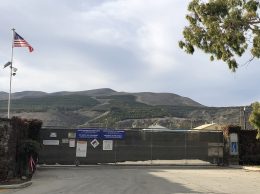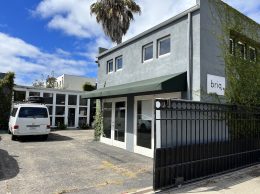Low gas prices great for tri-county consumers but not all businesses
IN THIS ARTICLE
- Columns Topic
- Henry Dubroff Author
By Henry Dubroff Friday, December 11th, 2015

Editor Henry Dubroff
Market disruptions have consequences.
And the downward spiral in oil prices looks like the sort of disruption that could have far-ranging consequences. For one thing, we may be at the dawn of a decade where baby-boom era memories of gasoline lines fade and global demand for petroleum products is suppressed as China’s appetite for commodities levels off.
Winners and losers are quickly being sorted out as benchmark oil prices worldwide tumble below $40 per barrel. In the Tri-Counties, a new normal of low gasoline prices will be a net positive for the economy. But, as we will see in a moment, there are some unexpected effects when gasoline prices stay below the $3 mark.
First, the winners. The tri-county consumer is a huge beneficiary from lower gas prices as suddenly the cost of filling up leaves cash that can be spent elsewhere. Restaurants and retailers will benefit and there will be double benefits for pizza drivers, florist shops, plumbers and contractors, who use gas or diesel on the job. Services companies like Meathead Movers and distribution companies like Jordanos are going to see their costs go down just as demand is picking up.
On balance, the travel and tourism industry will benefit as folks from Los Angeles find the drive to Ventura and Santa Barbara is cheaper; the same is true for Bay Area and Central Valley visitors to the Central Coast. Strong domestic tourism should make up for reduced European and Asian tourism thanks to the strong dollar.
Agribusinesses could be huge winners as more discretionary income means more money for premium Central Coast wines and its specialty agricultural products — berries, tomatoes, citrus and avocados. These companies use lots of fuel transporting their products to market, even if it is just down the coast to Los Angeles. And they will benefit globally as China and Asia pivot toward more consumption of higher quality foods.
But not everybody is coming up roses as gasoline prices fall. Local governments typically collect way more in taxes on gasoline than they earn in cost savings from a drop in the price of gas. So, they must look for rising hotel taxes and tax revenue on home goods and apparel to offset reduced revenue from gasoline. Because gasoline is taxed at a percentage of each sale, it takes tremendous increases in volume to make up for the per-gallon decline in revenue as gas prices fall.
Oil and gas producers have taken their lumps as prices fell from more than $100 per barrel to under $50. The latest decline is going to put a bigger squeeze on finances for leveraged companies.
But regional producers have some advantage over the new frackers in the Dakotas, Colorado and Texas — their oil should cost less per barrel to produce than the domestic competition.
So, the pain for leverage companies like Freeport McMoRan is going to be intense — expect them to quit their Central Coast holdings.
A more permanent decline in oil prices will have far reaching impacts. California’s dreams of a Monterey shale-led fracking boom will likely be on the shelf for a generation or perhaps longer. An extended decline could get policymakers thinking about raising the gasoline tax as a way to get revenue and permanently reduce demand even as the market recovers.
Meanwhile, low gasoline prices are infuriating to policymakers and planners who would like to see communities attack the problem of housing affordability by building more housing in cities like Ventura, Santa Barbara and San Luis Obispo.
If gas prices stay low, there will be mounting pressure to maintain the status quo and force middle class families into the long commutes that have come to define the Central Coast lifestyle.
• Contact Editor Henry Dubroff at [email protected].
Related Articles
 Friday, October 14th, 2022
Friday, October 14th, 2022











